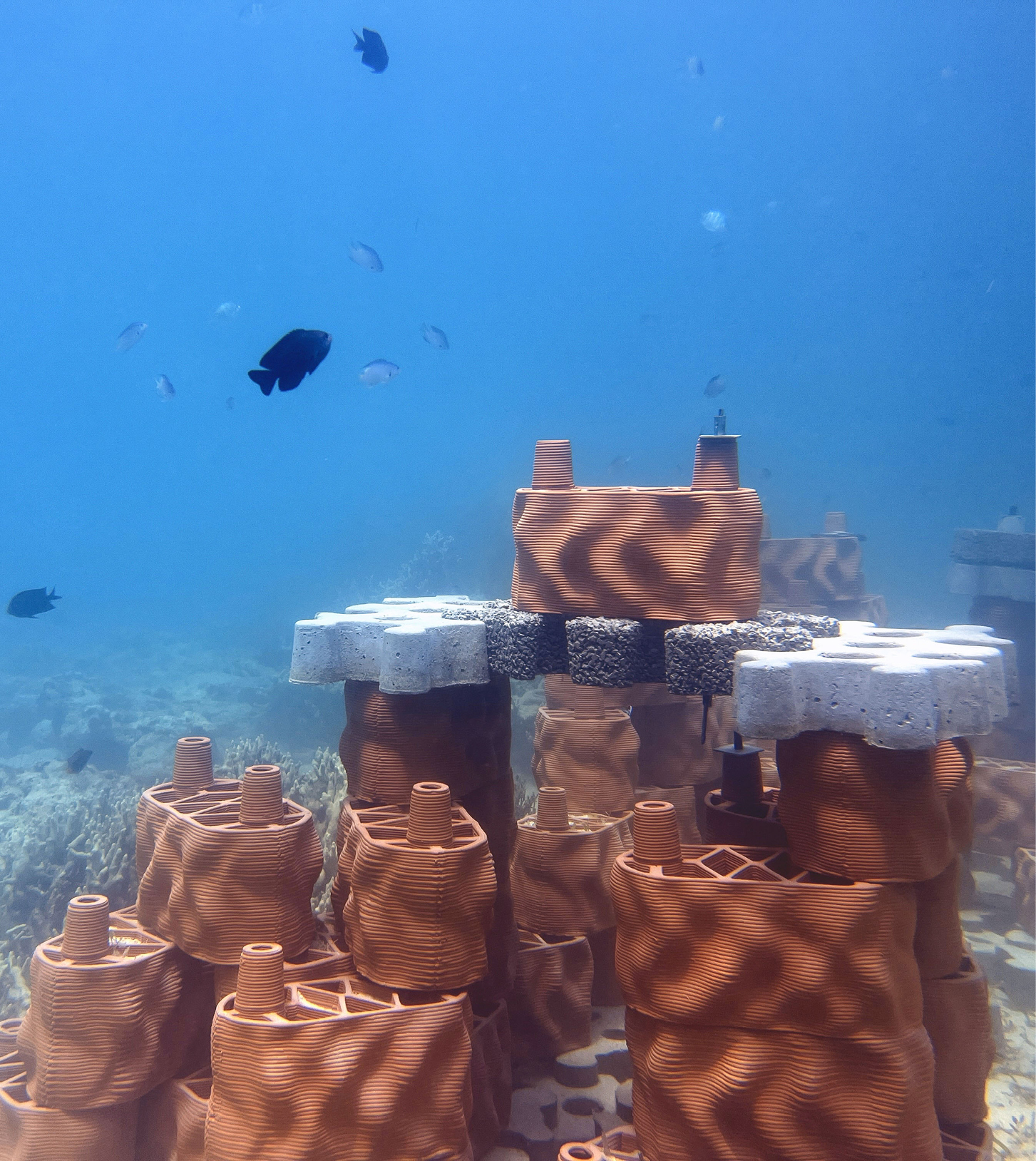Pujada Bay, Philippines
6°53′29″N 126°13′38″E
In February 2024, we have implemented our biggest reef project yet in Pujada Bay, Philippines.
The project spans over 100 m2 with 820 3D-printed modules made from terracotta clay. The system provides a foundation for corals to grow and fish to thrive and enables the regrowth of a healthy reef ecosystem without further maintenance.

the reef site
Declared a marine protected area in 1994, Pujada Bay is a biodiversity hotspot of diverse marine ecosystems. Its relatively sheltered waters provide a suitable environment for coral growth, allowing for thriving, interconnected coastal ecosystems.
The Philippines contain almost 10% of the world’s coral reefs with exceptional biodiversity, but to date, 98% of the country‘s reefs are classified as threatened, with 70% at high or very high risk. It is estimated that less than 2% are still in excellent health status.
our scientific partners
Recognizing the critical threat facing coral reefs and marine environments, local authorities in the region, including the Department of Environment and Natural Resources (DENR), are taking proactive steps to increase marine environmental protection.
For the implementation and monitoring of our reefs, we work closely together with the Davao Oriental State University (DOrSU) in Mati, the Coastal Conservation and Education Foundation (CCEF), and the DENR.
Coral reefs are not only vital ecosystems for marine biodiversity but serve as primary sources of livelihood for many coastal communities. This is why our work is not just a scientific endeavor; it is a mission that requires active involvement of local communities. Engaging these communities in the implementation, monitoring, protection and future production of the reefs ensures that local knowledge and insights are integrated into the restoration process.

corals meet mangroves
For our first project in Pujada Bay, we are joining forces with Team Malizia, the Mama Earth Foundation, and Zurich Gruppe Deutschland to regenerate degraded coral reefs and mangroves together. (Read more about this collaboration on our blog post.)
We have rebuilt an area of 100 m2 of coral reefs, of which 50 m2 are under the scope of this collaboration. Simultaneously to the reef regeneration, about 9000 mangroves have been planted at the coastline of our project area in Pujada Bay.
This experimental approach provides an opportunity to understand the potential benefits of simultaneous restoration of mangroves and coral reefs, and the importance of seagrass habitat in between.

ocean pioneers
We are very happy to collaborate with pioneering companies who strive for making a positive impact for coral reefs. They are trusting us and our solution to elevate their impact journey to the next level by rebuilding degraded coral reefs in the Philippines.
Learn more about our latest “2 % for the oceans” partnership with the startup Wild Foods and our shared commitment to the health and vitality of our oceans.
















